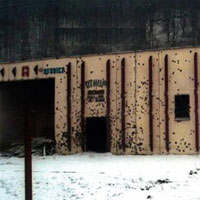Regarding the presentation of the Prosecutorial Strategy for the Investigation and Prosecution of War Crimes in the Republic of Serbia in the period 2018 to 2023
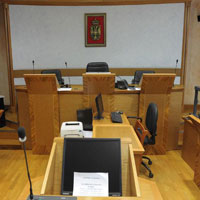
 On Monday, March 12, 2018, the Office of the War Crimes Prosecutor (OWCP) presented the Draft Prosecutorial Strategy for the Investigation and Prosecution of War Crimes in the Republic of Serbia for the period 2018-2023 (Draft), in accordance with the obligations of the Action Plan for Chapter 23 and the National War Crimes Prosecution Strategy (National Strategy). The Humanitarian Law Center (HLC) considers that the method of presenting the draft was not transparent, and that the draft strategy does not offer any solution to overcoming the key shortcomings in the previous work of the OWCP, and fails to determine adequate measures for achieving the primary goal the more efficient prosecution of war crimes.
On Monday, March 12, 2018, the Office of the War Crimes Prosecutor (OWCP) presented the Draft Prosecutorial Strategy for the Investigation and Prosecution of War Crimes in the Republic of Serbia for the period 2018-2023 (Draft), in accordance with the obligations of the Action Plan for Chapter 23 and the National War Crimes Prosecution Strategy (National Strategy). The Humanitarian Law Center (HLC) considers that the method of presenting the draft was not transparent, and that the draft strategy does not offer any solution to overcoming the key shortcomings in the previous work of the OWCP, and fails to determine adequate measures for achieving the primary goal the more efficient prosecution of war crimes.









 After 14 years, the first war crimes case before specialized court councils in Serbia came to a close with the new
After 14 years, the first war crimes case before specialized court councils in Serbia came to a close with the new 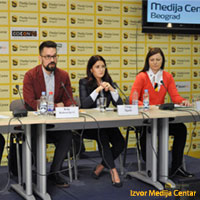

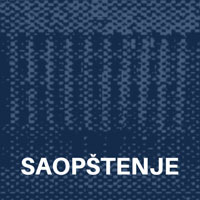
 On Tuesday, November 28, 2017, the Humanitarian Law Center (HLC) filed a constitutional complaint on behalf of the victims in the Trnje Case for violation of their right to a trial within a reasonable time. This case is being processed before the War Crimes Department of the High Court in Belgrade. The trial in this case was from the beginning obstructed by the accused, who continued with impunity, and during the four years since the indictment was issued, only nine trial days have been held. The HLC considers this case to be a paradigm of war crimes trials in Serbia: all accused persons defend themselves undetained; hearings are scheduled with monthly intervals; a strategy of the defense has for its aim the constant delay of hearings, which is being tolerated; and the few victims who monitor trials believing that they may see justice, are being ignored and humiliated.
On Tuesday, November 28, 2017, the Humanitarian Law Center (HLC) filed a constitutional complaint on behalf of the victims in the Trnje Case for violation of their right to a trial within a reasonable time. This case is being processed before the War Crimes Department of the High Court in Belgrade. The trial in this case was from the beginning obstructed by the accused, who continued with impunity, and during the four years since the indictment was issued, only nine trial days have been held. The HLC considers this case to be a paradigm of war crimes trials in Serbia: all accused persons defend themselves undetained; hearings are scheduled with monthly intervals; a strategy of the defense has for its aim the constant delay of hearings, which is being tolerated; and the few victims who monitor trials believing that they may see justice, are being ignored and humiliated. 
 On Friday, November 24, 2017, the Humanitarian Law Center (HLC), on behalf of the victims, filed an objection to the Office of the War Crimes Prosecutor’s (OWCP) decision not to prosecute General Dragan Živanović, the former commander of the 125th Motorized Brigade of the Army of Yugoslavia (125th mtbr VJ). The OWCP rendered this decision on March 1, 2017, and, contrary to the law, did not deliver it to the legal representative of the victims; however, the very next day, the prosecutor, Dragoljub Stanković, who conducted the investigation, informed Živanović and his defense attorney regarding the decision. The decision to drop the only investigation against a high-ranking officer of the VJ in secret, and thus to subvert the victims’ right to react in a timely manner, clearly shows that the OWCP, contrary to the obligations accompanying its process of EU integration, does not intend to abandon its habitual practice of guaranteeing impunity for high-ranking persons in the military, police and political structures.
On Friday, November 24, 2017, the Humanitarian Law Center (HLC), on behalf of the victims, filed an objection to the Office of the War Crimes Prosecutor’s (OWCP) decision not to prosecute General Dragan Živanović, the former commander of the 125th Motorized Brigade of the Army of Yugoslavia (125th mtbr VJ). The OWCP rendered this decision on March 1, 2017, and, contrary to the law, did not deliver it to the legal representative of the victims; however, the very next day, the prosecutor, Dragoljub Stanković, who conducted the investigation, informed Živanović and his defense attorney regarding the decision. The decision to drop the only investigation against a high-ranking officer of the VJ in secret, and thus to subvert the victims’ right to react in a timely manner, clearly shows that the OWCP, contrary to the obligations accompanying its process of EU integration, does not intend to abandon its habitual practice of guaranteeing impunity for high-ranking persons in the military, police and political structures. The main trial before the War Crimes Department of the High Court in Belgrade in the Trnje case, which was scheduled for September 13 2017, was not held because the defendant Pavle Gavrilović did not appear before the Court, again, because he allegedly fell ill on the day of the trial. His absence was, as in previous occurrences, justified on the basis of medical records issued by the Military Hospital in Niš. The second defendant, Rajko Kozlina, used to use a similar tactics of absence from the trial, with the only difference that he received confirmation of hospitalization from the Belgrade Military Medical Academy. Both defendants are still
The main trial before the War Crimes Department of the High Court in Belgrade in the Trnje case, which was scheduled for September 13 2017, was not held because the defendant Pavle Gavrilović did not appear before the Court, again, because he allegedly fell ill on the day of the trial. His absence was, as in previous occurrences, justified on the basis of medical records issued by the Military Hospital in Niš. The second defendant, Rajko Kozlina, used to use a similar tactics of absence from the trial, with the only difference that he received confirmation of hospitalization from the Belgrade Military Medical Academy. Both defendants are still 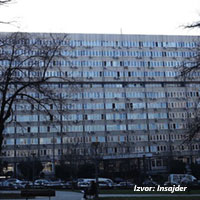
 More than a year after the adoption of the
More than a year after the adoption of the 